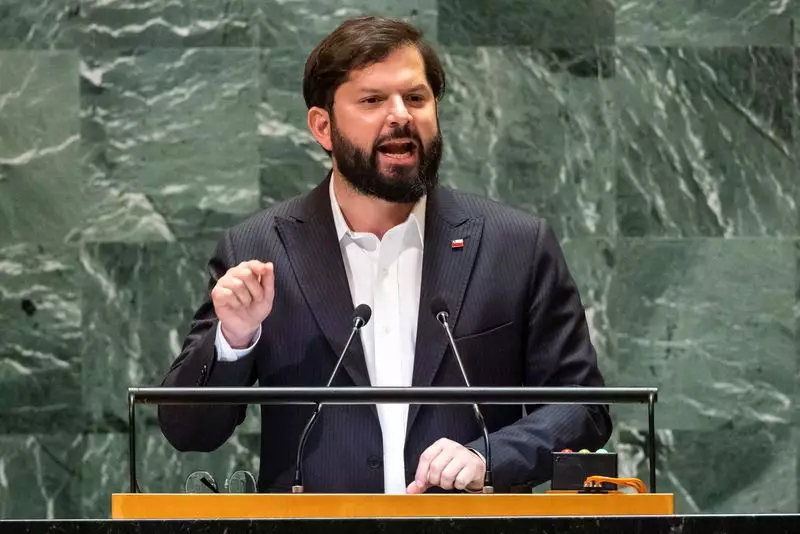Chile’s President Gabriel Boric recently unveiled the government’s proposal for the 2025 budget, pinpointing a planned annual increase of 2.7%. This adjustment reflects a strategic response to ongoing socio-economic challenges, with an emphasis on enhancing public services in key areas such as pensions, healthcare, and national security. As nations grapple with economic volatility in the wake of global shifts, Boric’s administration appears committed to crafting a budget that not only meets immediate needs but also positions Chile for sustainable growth.
A significant highlight of the 2025 budget is the increase of $1.5 billion earmarked for justice and security, representing a robust commitment to public safety. Boric underscored that ensuring citizens’ security is a supreme priority, stating that a considerable portion of the budget will be dedicated to deploying more police officers on the streets, enhancing their salaries, and improving prison facilities. This investment comes as Chile confronts rising concerns about crime and public safety, which have become not just local issues but national priorities that necessitate governmental intervention.
Moreover, Boric’s approach towards immigration has noticeably shifted, with the government aiming to limit migration as it grapples with the external pressures created by regional crises, such as the turmoil in Venezuela. His administration plans to expel migrants who fail to complete the official biometric registration process, emphasizing a stricter stance on illegal immigration. The implications of this policy are substantial, reflecting broader socio-political dynamics in Latin America, where migration flows often become contentious issues for governments struggling to maintain balance between humanitarian considerations and national security.
The proposed budget not only allocates resources for security measures but also significantly boosts the healthcare sector, with an ambitious 42% increase for Chilean immunization programs. As public health remains a critical concern post-pandemic, this funding aims to enhance the country’s healthcare infrastructure. Similarly, investment in education and cultural initiatives indicates a holistic vision for national development, one that acknowledges the interconnection between health, education, and overall economic vitality.
As Chile’s central bank forecasts a decline in inflation rates for the coming year, the government is targeting an economic growth rate of 2.6%. This figure reflects a more conservative outlook compared to previous estimates, unveiling the challenges that lie ahead in stimulating economic recovery while navigating global economic uncertainties. The recent approval of new tax legislation, projected to garner an additional $1.2 billion for the state, will play a vital role in supporting these initiatives and fostering growth.
As the budget proposal heads to Congress for approval, it sets the stage for a multifaceted approach to tackling both immediate and long-term challenges faced by Chilean society. The Boric administration’s focus on security, health, and sustainable growth encapsulates a vision that seeks to balance urgency with strategy, underscoring the complexities of governance in a year marked by both opportunity and uncertainty. The real test will be in the execution of these proposals and whether they are able to meet the rising expectations of the Chilean populace.

